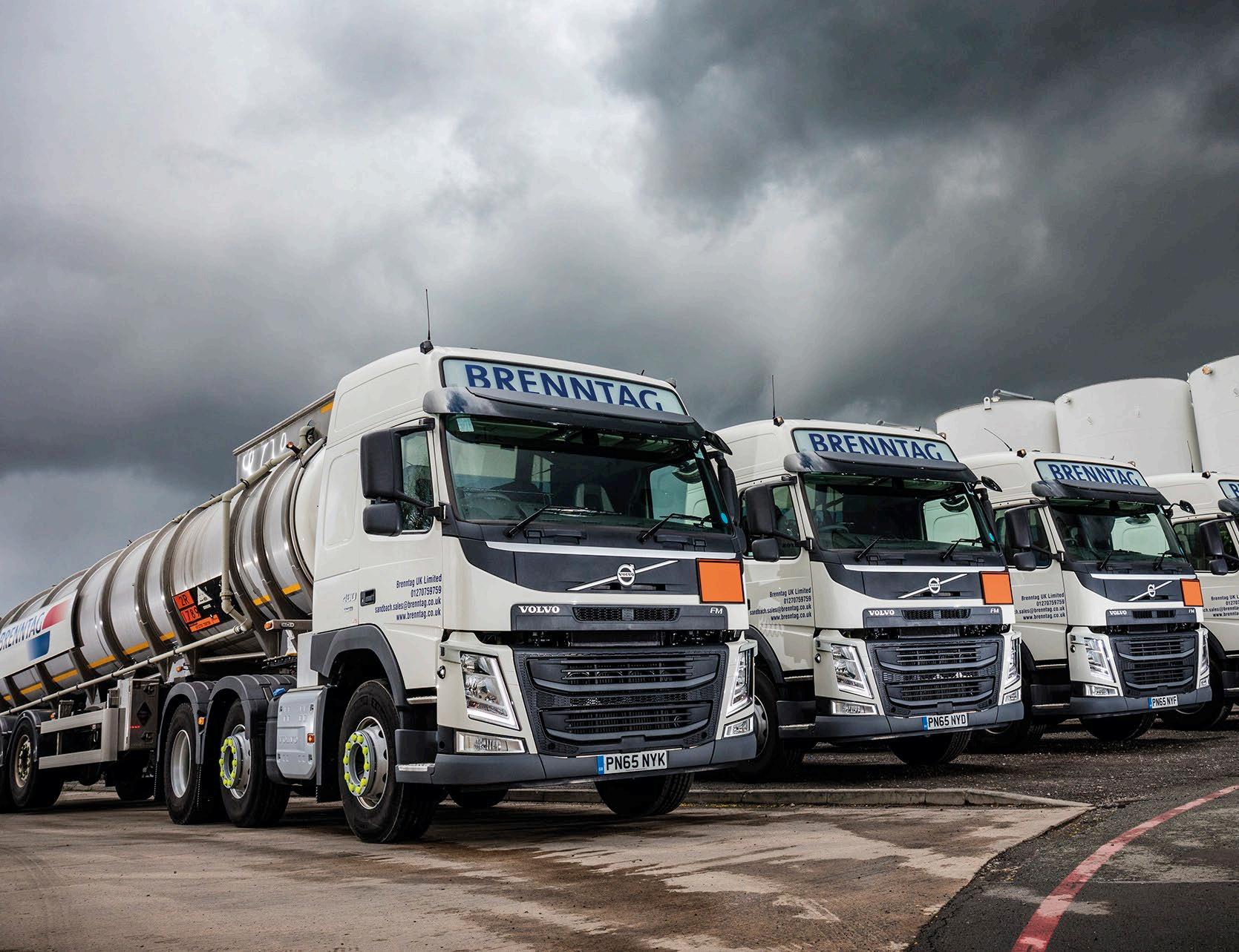
2 minute read
CBA reports worsening market
from HCB November 2021
BAD ALL OVER
UK • THE CURRENT SUPPLY CHAIN CRISIS IN THE UK IS WELL DOCUMENTED. CBA’S LATEST QUARTERLY SURVEY SHOWS EXACTLY HOW BIG ITS IMPACT IS ON ITS MEMBERS
FOR THE PAST FEW months, the UK has been experiencing significant issues in its domestic and international supply chains. It has been hit by international problems in the ocean shipping sector, compounded by the fall-out from Brexit; but it has immense internal problems, too, not least a massive shortfall in the availability of heavy goods vehicle (HGV) drivers resulting not only from EU nationals returning home but also from a long-term lack of interest in driving as a profession and the delays in undertaking new driving tests caused by Covid-related restrictions.
For the members of the UK Chemical Business Association (CBA), which represents the country’s chemical distributors and traders, those are fundamental challenges to their operations. “The business situation for our member companies has worsened considerably over the last three months,” said Tim Doggett, CBA’s chief executive, in late September. “Almost without exception, they are also having to deal with significant national and international supply chain issues – from the shortage of shipping containers and major hikes in shipping costs to the chronic shortage of HGV drivers.
“These issues are weakening the industry’s ability to recover from the impact of the Covid pandemic and the aftermath of Brexit,” Doggett continued. “CBA is one of the organisations that have led the campaign to highlight the issue of HGV driver shortage and to assist in finding solutions. We are encouraged that the Government has recognised the problem and has begun to take steps to resolve it, but it’s important to realise that there are no quick fixes. We will continue to work with Government and other stakeholders to find both short and mediumterm remedies, as well as long-term solutions to the problem.”
GETTING WORSE Doggett was speaking on the release of CBA’s latest quarterly Supply Chain Trends Survey, which was undertaken at the beginning of September. The survey asks CBA members to provide information on order books, sales, sales margins and employment, on a ‘better–worse–same’ basis. To measure short-term trends, the analysis ignores responses answering ‘same’ and focuses on the positive or negative balance provided by the difference between the ‘better-worse’ responses.
The September survey showed a fall in the strength of members’ orderbooks of more than 30 per cent compared to the previous survey, conducted in June. Current sales volumes also declined dramatically over the preceding three months, to a negative balance of -5 per cent, compared to a positive balance of 42 per cent in June. CBA members remained optimistic about the short-term outlook, though, with future sales predicted to rebound.
Current sales margins remained positive, at 2 per cent, though this was down on the 11 per cent reported in June, although members also forecast that sales margins would turn negative in the coming quarter. They are still expecting to employ more people, though again the figure was lower than in June.
CBA members were still finding difficulty in getting hold of shipping containers, with 83 per cent reporting shortages, much the same as in June, while almost all reported escalating costs. The number of members facing issues with domestic road haulage increased dramatically from 61 per cent in June to 93 per cent in September, while issues with EU road haulage remained relatively steady at 78 per cent. www.chemical.org.uk










